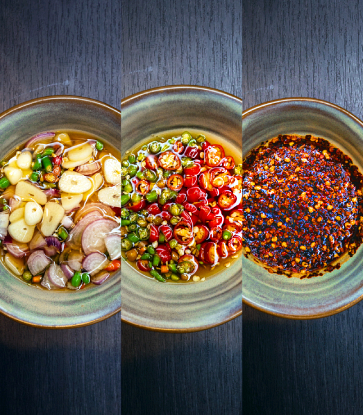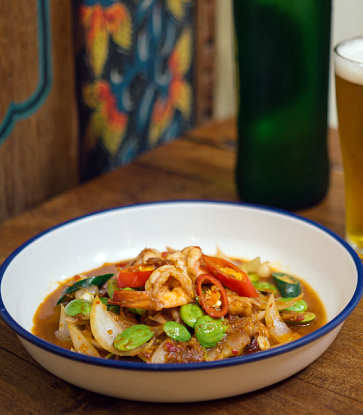The COVID-19 pandemic, which has been going on for over a year, affected and continues to affect restaurant businesses around the world, and Thailand is no different. Restaurateurs admit that this past year was difficult, forcing them to adapt to breathe life into their operations. Their dedication and commitment gave us a glimpse into the strengthened spirit demonstrated by the restaurant business.
And in these times when the way through is still unclear, three entrepreneurs in Thailand are seizing opportunities to adapt and overcome. So how do they view the situation ahead? We went to find out from Chef Thitid “Ton” Tassanakajohn of Le Du (One MICHELIN Star), Baan (Bib Gourmand), and Nusara (MICHELIN Plate); Choti Leenutaphong, founder of the Foodie Collection, including Il Fumo (MICHELIN Plate), La Dotta (MICHELIN Plate), and 80/20 (One MICHELIN Star); and Tatchai Nakapan, CEO of the Supanniga Group, including Supanniga Eating Room (MICHELIN Plate) and Somtum Der (MICHELIN Plate).
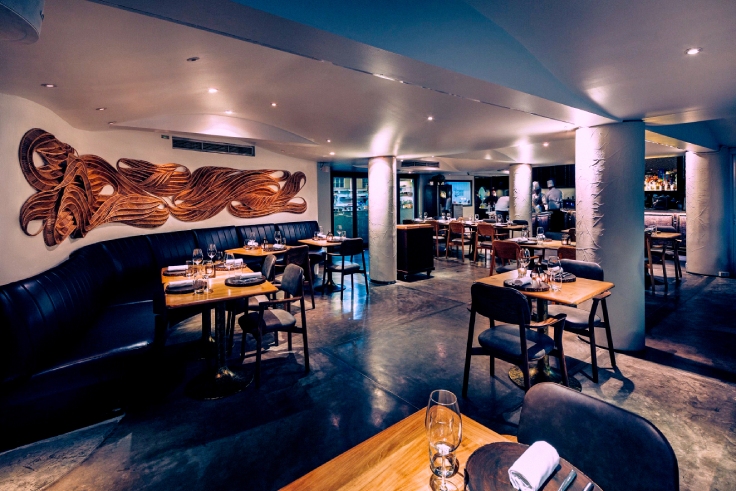
Days without diners
Chef Ton: “As COVID approached, we had Le Du and Baan, and we were about to open Mayrai, a wine bar. By February 2020, COVID was everywhere, causing sales to drop. Especially in March, sales dropped by over 50% even before the lockdown.
“Once the government announced the lockdown, we had to adapt to offer delivery. We still had losses during the three-month lockdown, but we did it to have enough to pay staff salaries. The losses were there, especially for Nusara, which was supposed to open in April 2020, but had to bear costs for several months.”

Leenutaphong: “The Foodie Collection consists mainly of fine dining restaurants as well as a cocktail bar, which emphasise pleasurable experiences. With the alcohol restrictions, they were severely affected. We tried to cope with delivery, but that’s difficult for fine dining restaurants. Luckily, we have La Dotta, a pasta bar that wasn’t as badly impacted. It’s a more casual dining concept with an already strong delivery service, so that helped us a lot.”
Nakapan: “During the first outbreak, we decided to shut down Supanniga Cruise as it relied heavily on tourism. To maintain our core business, we had to find ways to save money, so we combined Somtum Der Thong Lo with Supanniga Eating Room Thong Lo, so guests could enjoy both brands in the same location.”
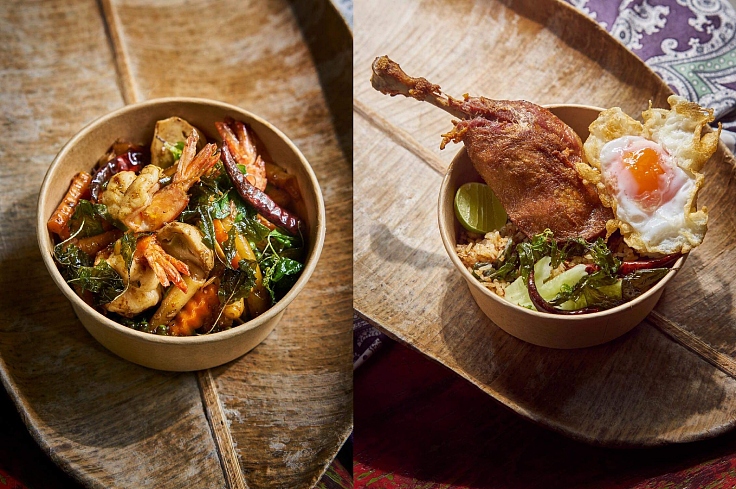
Adapting and moving forward
Chef Ton: “We did our best to cut costs. Luckily, we had an understanding owner who lowered our rent by 50%. On days there weren’t that many customers, we asked for staff cooperation to take leave without pay, and many were willing to take the extra time off. Also, during the lockdown, we developed Chef Ton's Bowls, an affordable lunch set for delivery. It helped somewhat in that we were able to pay staff salaries and customers could get delicious food at a reasonable price that they could enjoy when they were working from home or couldn’t eat out.
“After the first outbreak subsided, our situation improved a bit. We had Mayrai, a phad thai restaurant and wine bar, as well as Nusara, which introduced a new dining concept. Both were drawing a lot of customers, so we focused on these two restaurants. They helped ease the losses from the other restaurants so that they all could survive.
“Le Du is a fine dining restaurant that requires quite an investment. Delivery is a difficult proposition since people don’t want to spend the money without getting the full fine dining experience -- the atmosphere as well as the food and drink. But we still have to offer it. We see our staff as the key spirit of our restaurant, so removing them from the equation means we lose the restaurant’s spirit. And it’s unfair to them. Therefore, we will grit our teeth and continue to survive to the end. For Le Du, this means solving problems like bringing back diners after the lockdown who are still reluctant to eat out in restaurants by innovating and creating new menus. We also continue to focus on deliveries at our other restaurants, such as Baan and Chef Ton's Bowls, as well as the phad thai and other dishes at Mayrai, our casual dining option.”

Leenutaphong: “We tried to maintain our cashflow by selling vouchers. Customers benefit from being able to redeem the vouchers at any of our restaurants, and we do our best to add value to the service to improve our relationship with diners and to encourage loyalty. Also, as the tourism trade disappeared, we had to return our focus on local and regular customers, who are our main source of business. How do we keep this group satisfied and returning for more? We developed different menus offering unique experiences, featuring seasonal dishes so that local customers who are fans come back to try new dishes and experience something new with each visit.
“In addition to that, Il Fumo provides a private dining service, delivering a private banquet to customers’ homes. And La Dotta offers popular pasta-making classes, which can also be arranged as private classes at home. When we couldn’t sell alcohol at Vesper, we transformed it into a cafe, pivoting our mixology skills to mocktails and serving food from neighbouring 1919 Italian Bar & Restaurant. This received quite a good response too. Aside from encouraging regular customers who missed us to come back, this also brought in new customers as well. With all that we’ve done, we can see how we could rely on our strength of expertise and customer service to innovate and not limit ourselves to how we did things before.”

Nakapan: “Fortunately, before COVID, we launched Sood Kua by Supanniga, which focused on delivering one-dish meals like Trat-style roasted rice with chilli and salt. We seriously promoted this brand and had successful sales. But really, we’ve been suffering difficulties since the beginning because both Supanniga and Somtum Der emphasise the dining-in experience -- food, atmosphere, service, etc. And even though Supanniga Eating Room cooks authentic Thai food for local palates, most of our customers were foreign tourists as well as corporate catering clients who also have disappeared.
“In addition to Sood Kua by Supanniga, we tried to develop deliveries from Supanniga and Somtum Der. This helped a bit, but compared to the full impact of the situation, we really didn’t benefit much. This is because every restaurant is competing for deliveries, but this has to be done so we can make the rent. We tried many things -- DIY boxes for easily prepared meals for customers to make themselves at home, Supanniga frozen foods, trying to create a corporate set meals, and opening a store with Cloud Kitchen. It’s all trial and error until you figure out what works and what doesn’t work.”

Lessons learnt for the future
Chef Ton: “No one knows when this pandemic will end. All we can do is maintain this situation and hope our business survives. Even as consumer behaviour changes, we must continue to fight. I think the key lesson learned is the importance of teamwork. A strong team means being able to make our way through any situation. It is essential not to give up.”
Nakapan: “It is natural to try different things to find out how to survive. We keep doing what works, and for what doesn’t work, we should consider it a lesson learned. The key is to not stop trying. I learned that we must focus on the heart of our business, to develop and improve our existing products. This includes how to make our deliveries taste as close as possible to dishes served in our restaurants. I think that when a crisis like this happens, a restaurateur must ask himself where the value is and focus on that as much as possible. For the Supanniga Group, that is the dining experience in the restaurant. That’s where we should focus so that when customers are ready to return to dining out, they will think of us.
“It’s also important to continue to pursue new opportunities. We plan on opening a Supanniga Eating Room in Beijing around the middle of this year. This will be our first branch abroad. Despite the risks from COVID, we believe there is still an opportunity to expand the business because China is one of the few countries that has had economic growth during this crisis. And Chinese people really love Thai food. If they can’t visit Thailand to eat Thai food, then we will bring Thai food to them.”

Leenutaphong: “Hopefully, the relaxation of restrictions to alcohol sales should be of great help now. But I still can’t imagine what if this happens again. What can we do? But what I learned from the past should help us handle future situations, such as how important it is to manage cash flow. We need enough money moving to maintain the business and move forward. For now, I know that we must keep coming up with new ways, new possibilities of doing things, to face unexpected situations that may arise in the future. But no matter what, there will always be things beyond our control.
“I would like the government to see restaurants as part of the tourism industry, which makes up 25% of GDP. Therefore, to build confidence in tourists so they return here in the future, consider that, in addition to healthcare workers, some countries are providing vaccines for frontline service workers as well. If we would like our tourism sector to recover quickly, why don’t we think about doing something similar to encourage foreign tourists back?
“And as a restaurateur, I firmly believe that no matter the difficult situation, whatever the crisis, there is a way out. I am convinced that many of my colleagues and peers, from fine dining restaurants to casual eateries, do what they do from the heart. It’s not just about the money. If we can keep up our heart and spirit, we can continue to fight as much as we can. However, we must change to the ‘new normal’, and even if we’re not sure what that is, we must endure. We must stay observant and learn how to continue to adapt.”
Hero photo: © Supanniga Group, Le Du, Anuwat Senivansa Na Ayudhya / MICHELIN Guide Thailand






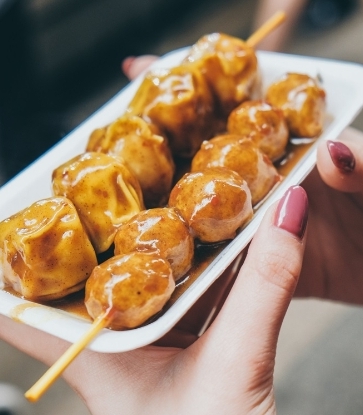


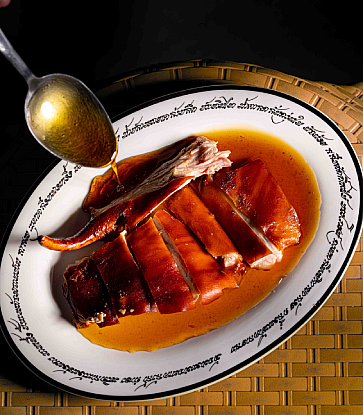
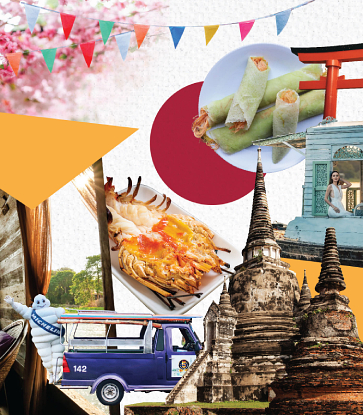
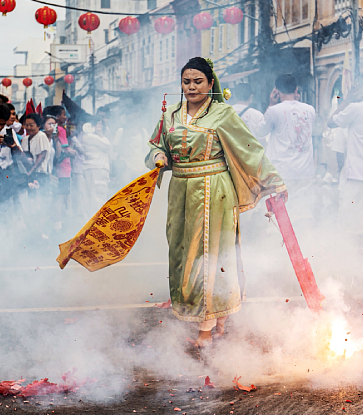
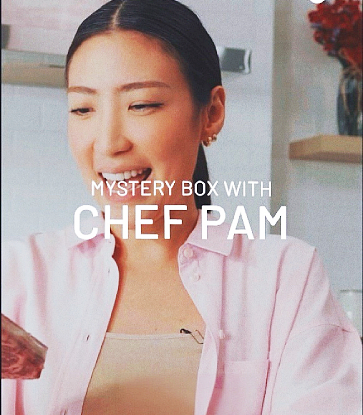
%20-%20Aman%20Nai%20Lert.jpg)
.jpg)
